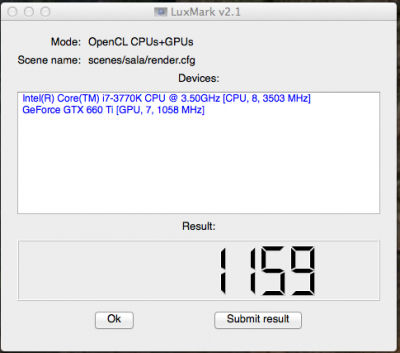- Joined
- Dec 8, 2010
- Messages
- 159
- Motherboard
- Asus Prime X299 Deluxe
- CPU
- i9-7900
- Graphics
- Radeon VII
- Mobile Phone
Hi Abberracus,
I saw some of your posts about the r9 280x.
I've been thinking of getting one (eventually maybe two)
I do a lot of FCPX.
Will two cards make a difference?
I've read about crossfire not working, but some posts are really old.
Also I've read that you changed the smbios to a macpro 5,1, and deleted the AppleTyMCEDriver kext.
Is there anything else I should consider before buying?
I am currently using them on a Gigabyte ga-x79s e-atx motherboard with an I7-3930k
I am using a mac pro 6.1 smbios and they work flawlessly. 2 cards make difference for rendering on FCPX 10.1 +
They have worked OOB w/o problems so far since 10.9.1 (currently on 10.9.2).
One of them runs a little hotter but I guess it's normal since monitors are only connected to one and the one that is higher will get warmer air.
I think they are very good cards and would recommend them - I am using the XFX double D.
Good luck and let me know if I can help you with anything.


